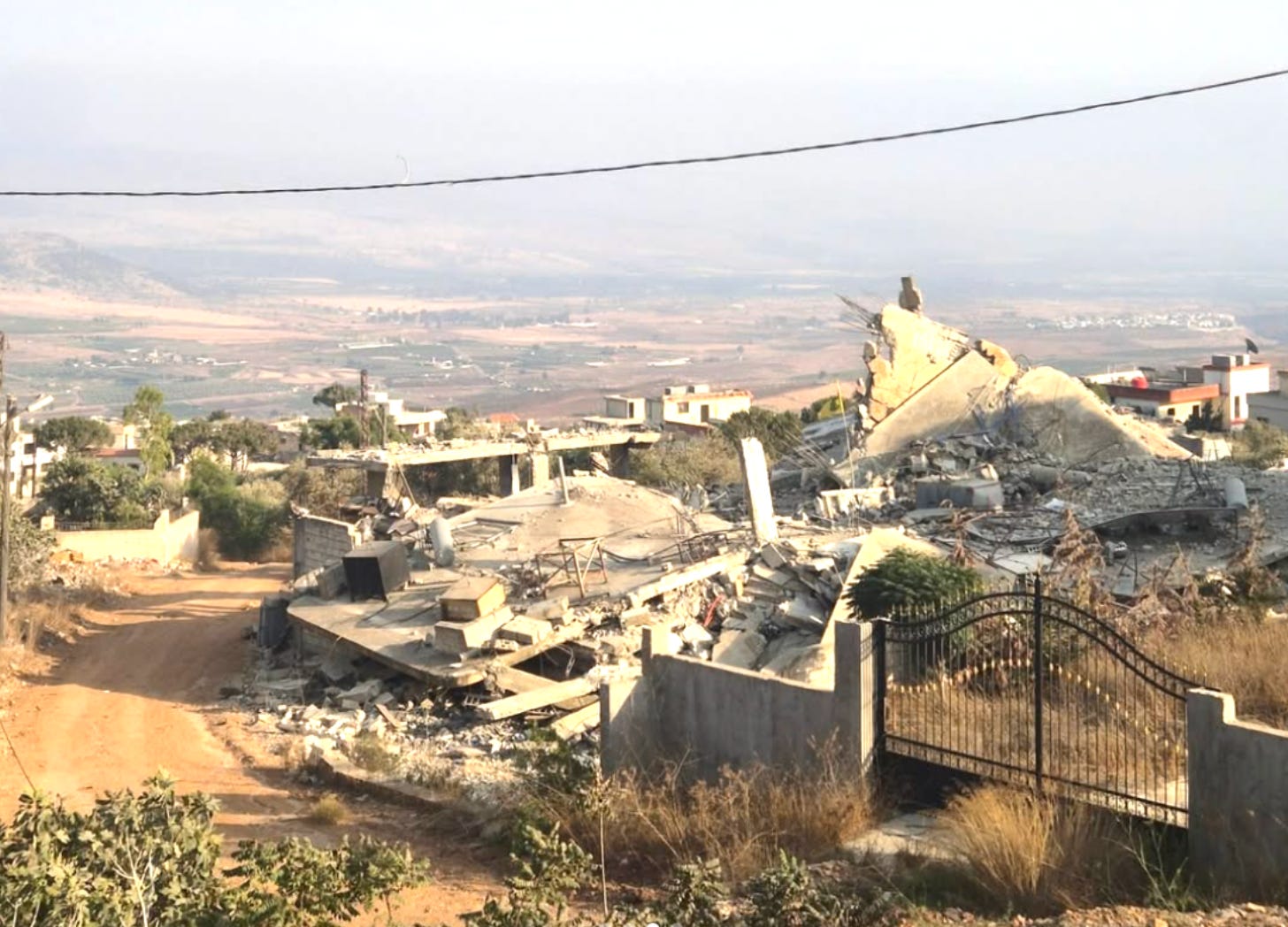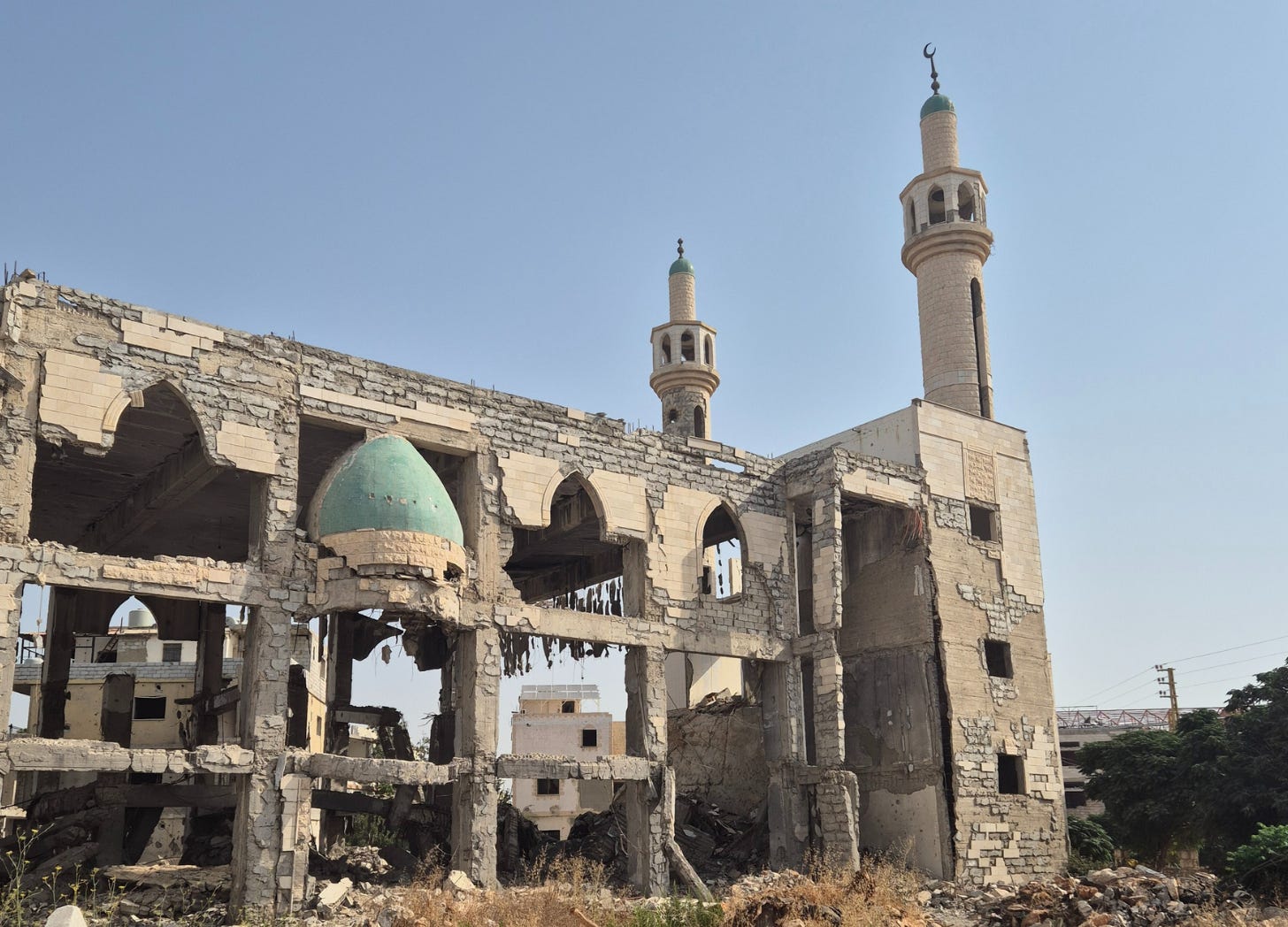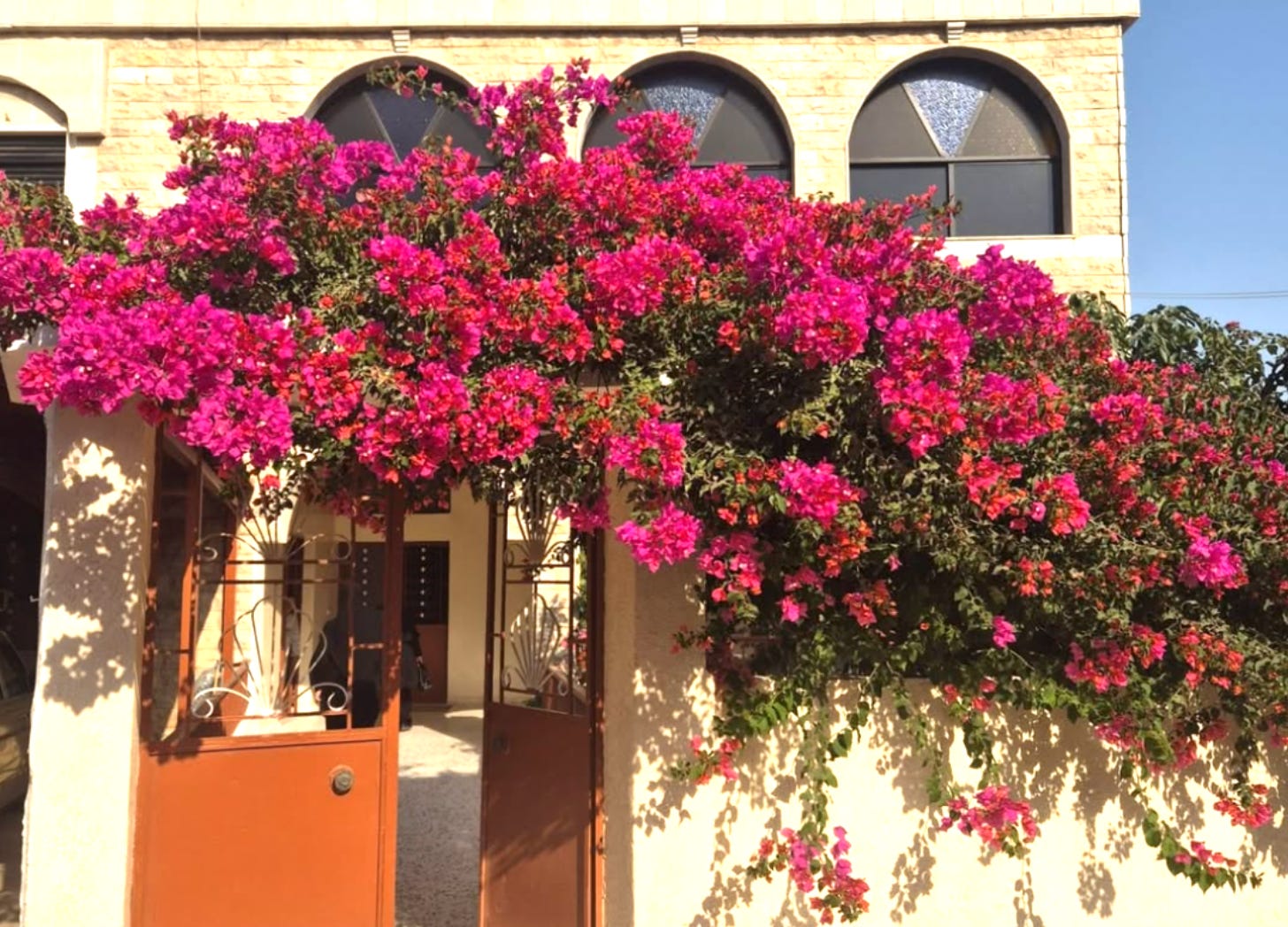I returned to south Lebanon for my grandfather's funeral – and found my village in ruins
A Wollongong man recounts his return to Al-Khiam, his ancestral village in south Lebanon, shattered by war and struggling to heal.
Written by Ahmad Khochaiche - a Lebanese Australian with roots in south Lebanon. He currently lives on Dharawal Country.
Death can be a beautiful thing. It can bring people from different parts of the world together. And it can create a space where extended families are no longer extended, but immediate.
I first experienced this beautiful side of death in 2014, when my paternal jiddo (grandfather) Hajj Mohammad Abu Ali passed away after 89 years. More than 20 of us in Australia flew his body back to our village in south Lebanon, Al-Khiam, to lay him to rest. I knew then how special the moment was – for us all to be there, together, in our ancestral village, our home.
Fast forward 11 years and I am once again boarding a flight from Sydney to Beirut, this time alone to visit the fresh grave of my maternal jiddo and namesake, Hajj Ahmad Abu Ali. Except this time, there was no beauty in my heart, only a deep mourning.
Al-Khiam is an ancient village surrounded by lush hills, comprised of mostly Shia Muslims and a small Christian community that have coexisted peacefully for centuries. This has been the home of my ancestors for more than 300 years. It also sits only a few kilometres from the border with Israel, or occupied Palestine. It’s a border drawn by foreign colonisers – a border we, the indigenous people of the land, never asked for.
The village suffered immensely in the most recent war with Israel. More than 150 of Al-Khiam’s residents were killed, with many of their bodies still missing. The extensive Israeli air and ground assault also destroyed or damaged 75% of homes and buildings. The village continues to suffer as Israeli jets and drones continue to bomb it and its surrounds, in violation of ceasefire terms Israel signed in November 2024, preventing native inhabitants from returning to their homes, their lives. Nearby villages such as Kfarkela and Odaisseh have been completely obliterated.
But I returned. No airstrike, no drone was going to stop me from visiting my native lands, to pay respect to my grandfather as his body returned to the soil of his ancestors.
It normally takes an hour and a half to snake our way from Beirut airport up the hills to Al-Khiam. I had spent the flight imagining the feeling of my taita’s (grandmother) embrace. The reality is no imagination could capture what it felt like when we finally held one another, and she solemnly cried, “your jiddo has left us”. My tears held, blocked by a numbing grief.
The next morning, I woke for Fajr (dawn) prayers and went down to the cemetery to visit his grave. The sun’s rays streaked through the mountains from the east, coating the village as I walked to deliver my final farewell. His house overlooks the cemetery, so it’s fitting that his final resting place would be in the shadow of his home.
The cemetery, however, is mostly a patchwork of rubble, its tomb stones ravaged due to Israeli attacks. A new section has since been added, neatly arranged with polished tombstones of the dozens of resistance fighters who had made the ultimate sacrifice in defending Al-Khiam from an attempted Israeli invasion in the last war.
This is where I finally cried.
I cried from seeing images of their bright faces displayed over their graves. I cried from seeing their families draped in black sitting by their markers, in perpetual longing. I cried from the knowledge that many of them were younger than me.
I was overcome by a feeling of deep shame. I live freely in Australia. I go about my normal workday, go for my runs and bike rides, enjoy the beaches and nature that surround where I live in Wollongong, and sit on the couch and watch the footy. I do this all with a constant ring in the back of my mind that there is an Ahmad my age or younger in Lebanon or Palestine, dying to protect our native land. A land that I, the one who lives freely at the bottom of the world, may visit one summer for a holiday.
The only thing that separates me from them is mere chance. It is by chance that I was born in Australia and can live in relative peace. It is also by chance that they were born in south Lebanon, or in Gaza and thrust into a violent world imposed by foreign colonisers where resistance was the only way to survive.
I left the cemetery and walked around the village before the intensity of the summer heat forbade it. In previous trips, I would go for runs around the village. This time, however, runs were not possible. The village has been altered by the wrath of a setter-colony bent on genocide and destruction. Homes, mosques, schools, shops, council buildings, all gone. The southern part of the village which directly faces occupied northern Palestine is a no-go zone, falling in the line of sight of Israeli snipers with drones constantly buzzing overhead.
It’s surreal to imagine that my ancestors have lived here in relative harmony for centuries, only to now face an existential threat from a foreign occupier that knows no reason, no decency, no humanity. In addition to colonising Palestine, the Israelis have now established eight military bases on Lebanese soil. They fire at residents of the border villages who try to return to their ruined homes. Drones and fighter jets freely roam Lebanese skies striking anyone, anywhere, at any time.
I heard the hum of drones daily in the two weeks I visited south Lebanon. Small reconnaissance drones similar to those used by photographers would fly low, hovering above our heads as we sat down for breakfast outside my uncle’s damaged home. The occasional sound of an airstrike would echo into the village, plumes of smoke visible in the distance. WhatsApp or Instagram notifications would sound on our phones, sharing the name of yet another person who had been murdered.
South Lebanon has borne the brunt of the expansionist lust of successive Zionist regimes for decades, particularly the Shia-majority areas. The people, like my relatives in Al-Khiam, have grown accustomed to it all.
“That bang was far away; they usually hit that mountain.”
“That wasn’t a bomb, it was just a jet doing a sonic boom to scare us.”
“It’s Thursday, they normally do more strikes on Thursdays.”
“Helicopters are fine, only the UN flies those around here.”
“It’s normal, what are we meant to do?”
During the so-called ceasefire, Israeli forces entered our village. My grandaunt’s home was used as a makeshift base of operations in Al-Khiam, while she and her family were forced to flee. When the family returned, they found everything inside trashed, with rubbish dumped inside. Walls were graffitied with the Star of David and racial slurs. Excrement, presumably from the soldiers, was smeared on the walls and floors. And her home was the lucky one – they didn’t destroy it when they finished defiling every corner.
On visiting her house, I was greeted by the towering, bright pink bougainvillea that I’ve known since my childhood. The ravaged interior I had seen in images months prior had been restored to its former self. Everything inside had been cleaned out, furniture replaced and walls painted. The last remnants of graffitied Hebrew in the garage will soon be removed. This revival is a testament to the will of our people to continue to return home no matter what the colonisers do.
Before it was called south Lebanon due to arbitrary colonial borders, we were known as the people of Jabal Amel – our closest mountain. The ancient people of Jabal Amel are steadfast and have stood in the face of colonial aggression for much of the last century. But, in these lands, resilience and exhaustion are two bindings on the same rope.
The people are tired. Tired of the machines of death flying above their heads. Tired of news of yet more martyrs. Tired of waiting for the next inevitable full-scale invasion. Tired of packing their bags and fleeing yet again.
But this is our home. It’s where loved ones assemble to revel in the glow of our ancestors. It’s where meals are shared as the cool summer mountain breeze brushes our cheeks. It’s the rivers and pine forests. Nothing can replace that. Staying away, not visiting home, means surrendering to the coloniser. It means abandoning the earth that embraces the bodies of our martyrs.







Capitalism is a a cascading series of violent thefts of ancestral commons. From Ireland, the Scottish highlands, Australia, North America, South Africa and Palestine.
A lucid, disturbing and deeply moving tribute to family and place.